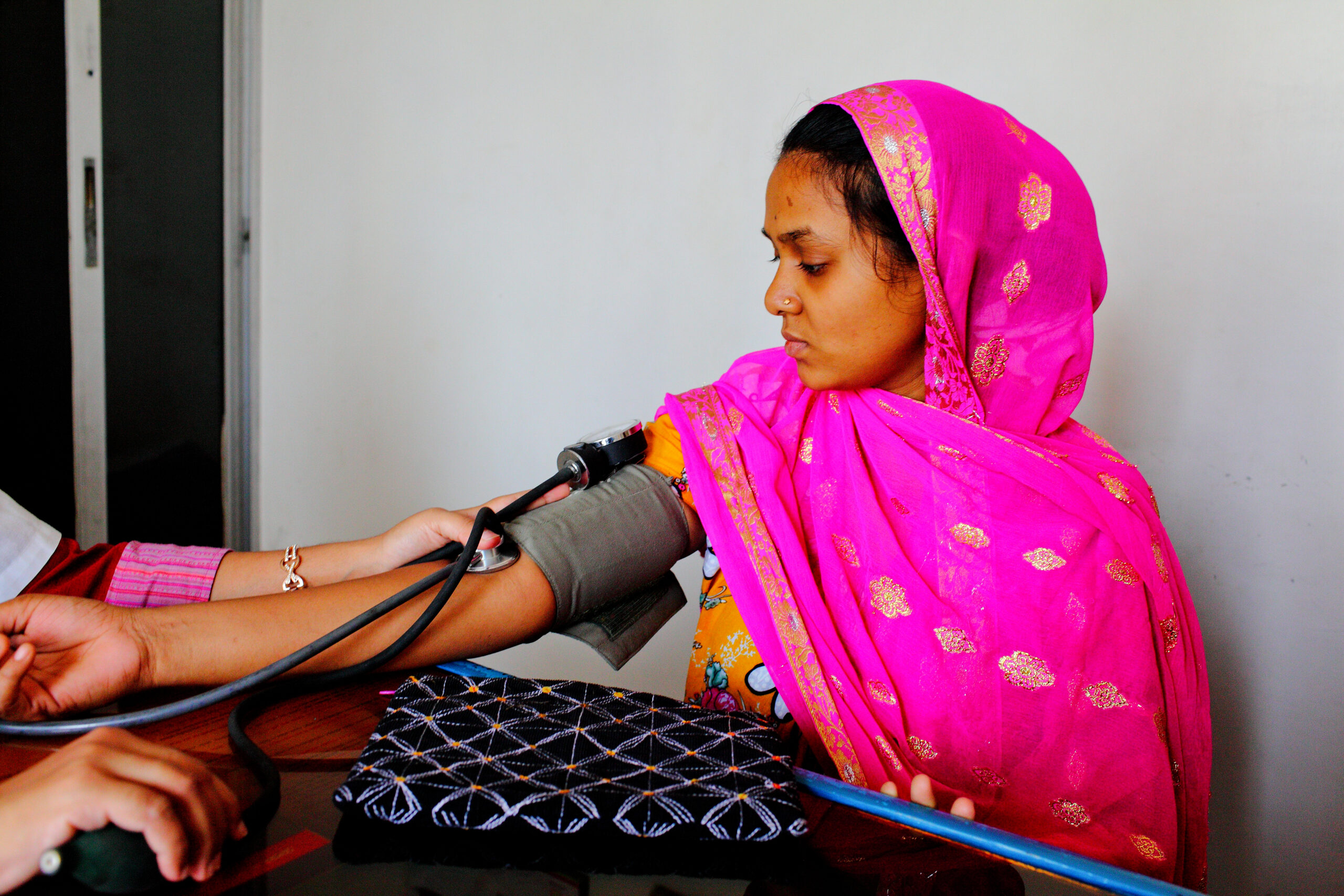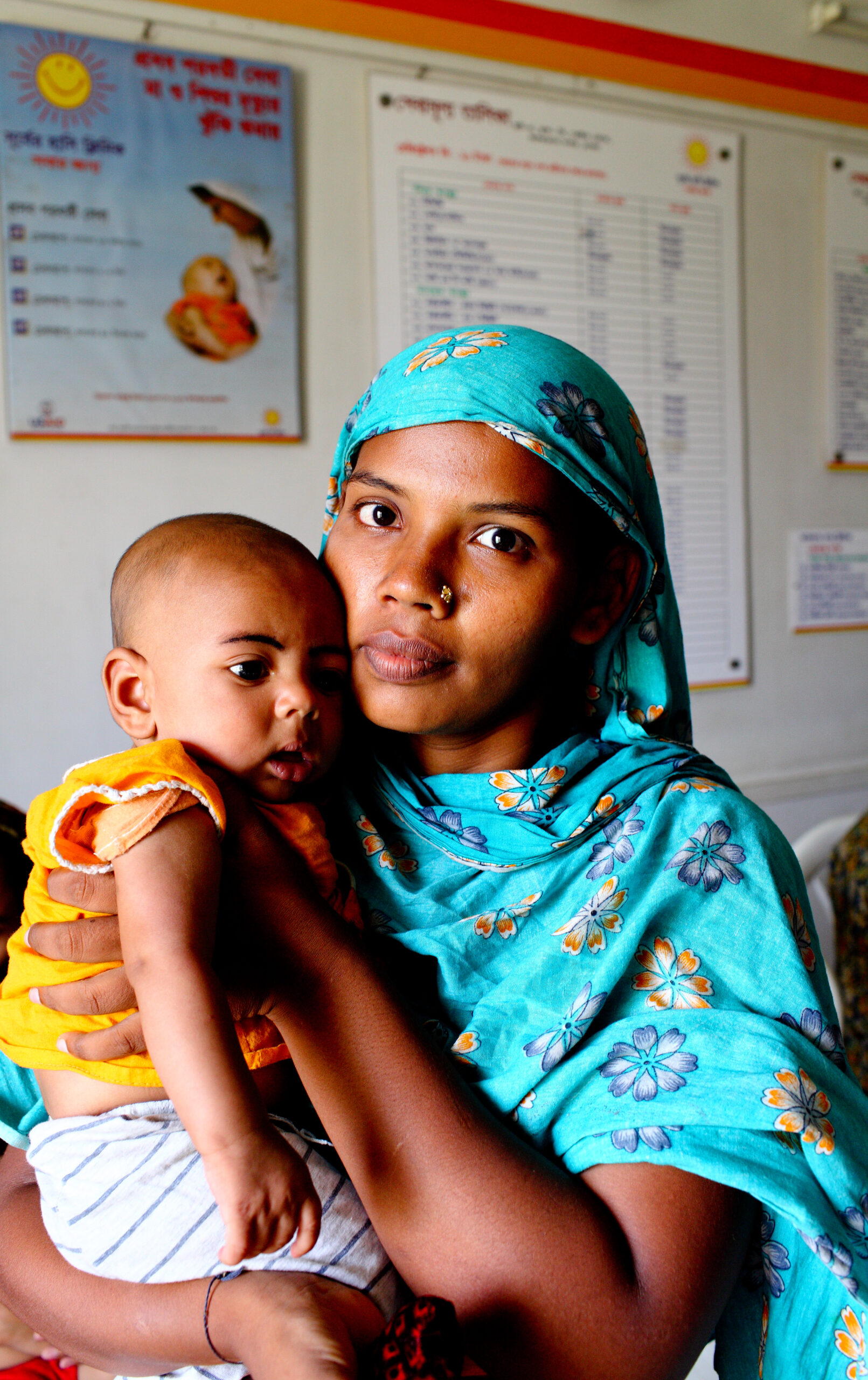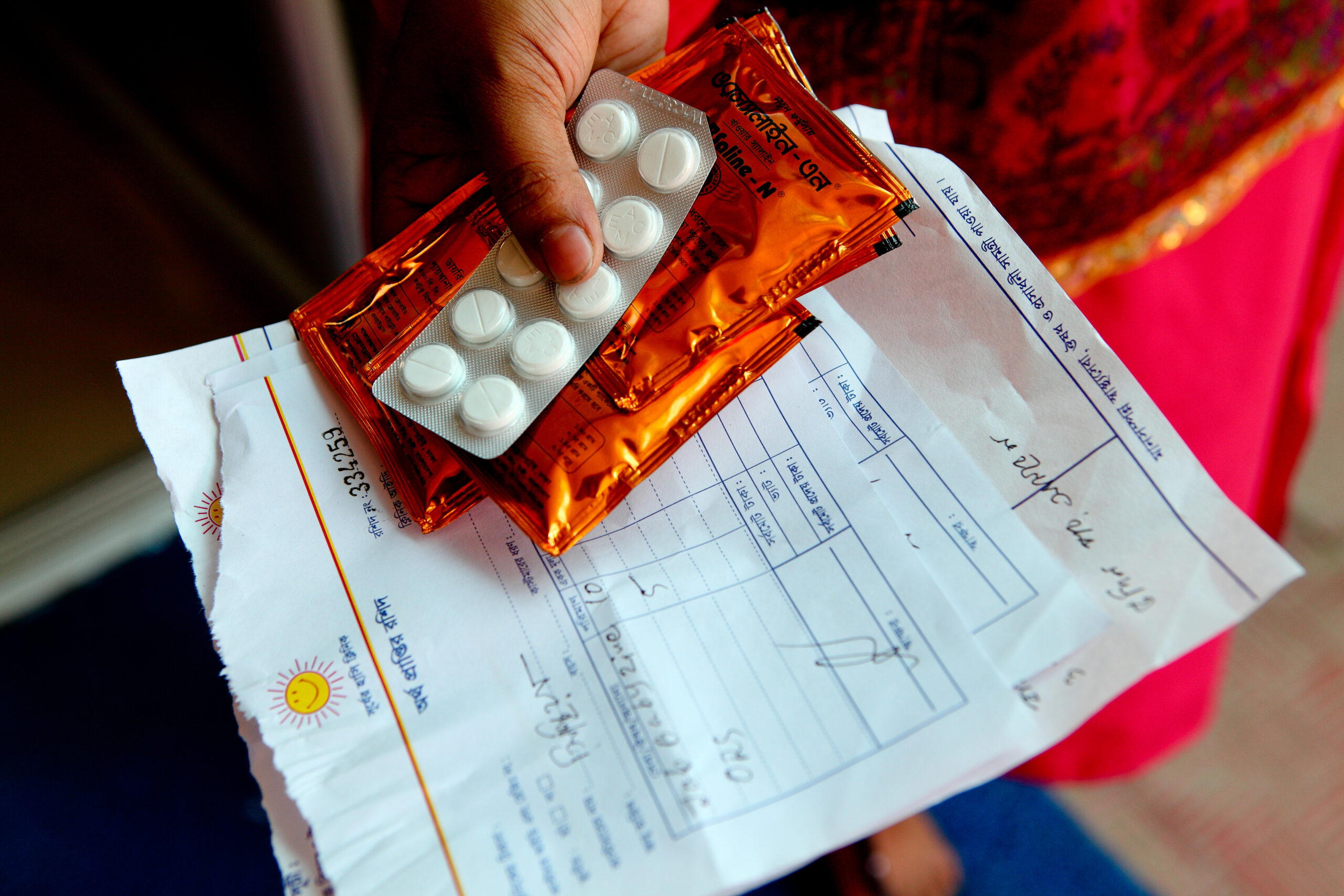Case Study
From Floods to Financial Resilience: Strengthening Primary Health Care in Bangladesh
Turning a Crisis into a Catalyst for Health System Reform
Health Infrastructure and Systems

The Challenge
The primary health care system in Bangladesh consists of a fragmented care network. Weak clinic operations limit access for women, adolescents, and low-income families. In this fragile context, COVID-19 and the 2022 floods disrupted service delivery even further and exposed gaps in financial sustainability and health system readiness during emergencies.Our Solution
Stronger Health Services through Smarter Systems
To address both the immediate shock and humanitarian crisis, as well as the longer-term systemic challenge, Chemonics worked with multiple system actors to provide a holistic response. Specifically, we:
- Transformed the Surjer Hashi Network into a centralized, pro-poor social enterprise with digital systems, standardized tools, and quality improvement protocols.
- Mobilized communities and adapted service delivery — using boats, generators, and grassroots communication — to ensure continuity of service during emergencies.


The Impact:
Essential Care, Uninterrupted for Millions in Need
The impact from these interventions were significant. By the numbers, we
- Delivered more than 107 million health services, improved care quality, and boosted cost recovery from 38% to 69% across the network.
- Maintained essential health services during the 2022 floods. In only six days, health facilities served 1,251 clients, conducted 218 antenatal visits, and facilitated 31 safe deliveries in flood-affected areas.